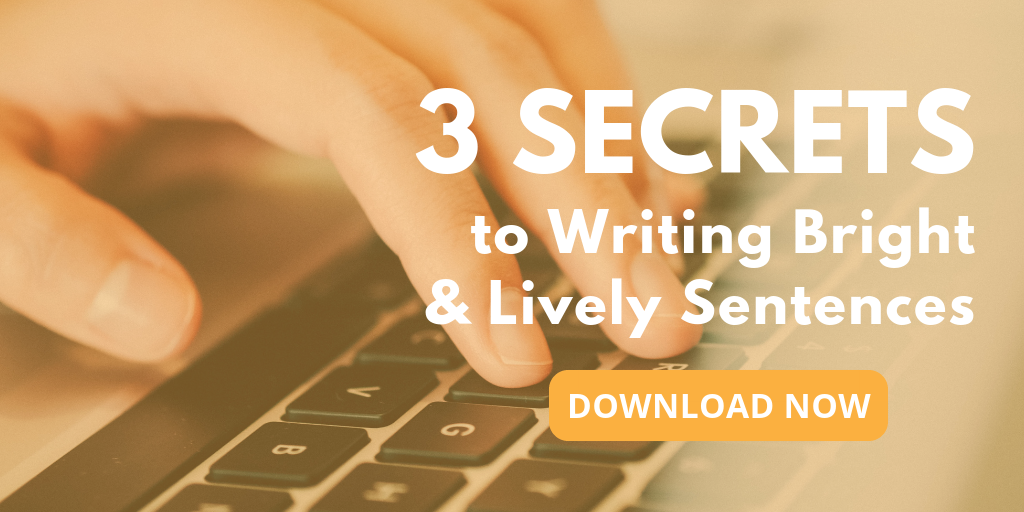Most people want to improve their writing—but they don’t want to expend any effort to do it. Luckily, there is a way improve writing without taking a class or doing practice exercises: reading. Lazy, yet hopeful writers can get better simply by reading more. The more you read, the better you’ll write. This is your permission to read and relax and call it work. It may be the motivation you need to read more.
Carve out time from your daily schedule to read long-form works. As engaging as blogs, magazines, and social media can be, reading well-edited, long-form writing plays a different role in your development as a writer.
Reading long-form writing is a low-effort (and enjoyable) way to become a better writer. Here’s how it helps you.
1. The more comfortable you are with words, the more comfortable you’ll be with writing them.
Since the most difficult part of writing is willing yourself to write that initial first draft, reducing self-consciousness and fears of failure is crucial to eventually writing a piece you’re proud of. Frequent, consistent reading often will increase your comfort with words.
In his book On Writing, Stephen King wrote:
The real importance of reading is that it creates an ease and intimacy with the process of writing; one comes to the country of the writer with one's papers and identification pretty much in order. Constant reading will pull you into a place (a mind-set, if you like the phrase) where you can write eagerly and without self-consciousness.
If reading makes bestselling authors like Stephen King more comfortable with writing, it’s worth considering if making more time to read would help you, too.
2. Develop your writing style by recording your reactions to what you read.
When you read, you expose yourself to new ideas, new ways of thinking, and new ways of writing. You won’t like every new approach you see—and that’s a good thing. Learning what you like and dislike helps develop your writing style.
If you don’t like an author’s approach, record your reactions and the text that elicited it. Explore why you dislike it and how you can avoid making a reader feel similarly. For example, I hate it when an author ends story by having the protagonist wake up, implying everything was a dream. It feels like a cop-out authors use when they developed plotlines they don’t think they can resolve (It’s not just in books: remember Lost?), and the first time I read a book with that ending, I resolved that if I was ever tempted to write a conclusion like that, I needed to re-evaluate my story.
At their best, books and articles give you examples to inspire you. I like to write down particularly moving or eloquent phrases I read so I can look at them later to understand what I liked so much about them. Authors like Jane Austen showed me humor can challenge social classes, and I still keep a paragraph written by young adult novelist John Green on my phone because I love how he used punctuation to make it flow. Writing is nuanced, so be open to learning a different facet of it from any book you read.
3. Get to know other cultures, gain insights, and develop empathy so you can connect with readers.
Writing should invite the reader into the author’s world, either her real world or the one she designed. But developing an authentic and inviting voice or appropriately demonstrating worldview and experience requires something beyond the lived experience of the author.
Reading books helps develop a well-rounded worldview that allows an author to share her story and for people to connect with it. It also helps an author to tell another’s story authentically, with a firm grasp on historical and cultural context, and without appropriation.
Books offer wonderful opportunities to learn about people we may never meet. I don’t have the budget or vacation time to see every part of the world I want to see, but I can check out books on a variety of cultures for free at the library five blocks from my apartment. Historical works help us better understand the past, and I’ve read several textbooks to learn about the subjects I never studied in school. Reading essays and memoirs written by people with different backgrounds and mindsets from my own has made me more empathetic and challenged beliefs I considered unshakeable. As a person who benefits from a great deal of privilege, I know I can never learn too much about others’ worldviews and experiences. Reading a diverse authorship has made me more empathetic and better able to write characters who have different backgrounds than I do. Professionally, that empathy and cultural awareness has made me passionate about ensuring people write in a way that’s accessible to as many people as possible. “The pen is mightier than the sword” is a cliché for a reason; dive into powerful works with an openness to change, and you probably will.
4. Step away from your own work and return to it refreshed and inspired.
Writers’ block plagues even professional writers. Sometimes I can write for pages with no trouble and then find myself completely stuck because I can’t figure out what word I want to use, and somehow that spirals into a sense that the rest of my piece won’t work until I figure out what I want that sentence to say. I’ve been writing long enough to know that mentality is neither reasonable nor sustainable, so rather than give up the piece, I usually opt to step away from my screen and go for a walk or pick up a book. Both are good ways to distance yourself from what you’re doing, and reading has the added benefit of potentially reminding you of that one word that would be perfect in that sentence you stared at for fifteen minutes before giving up. And even if your reading break doesn’t remind you of fortuitous or pulsate, you’ll still reap the first two benefits we mentioned, and your eyes will thank you for looking away from blue light.
Make Your Writing Even Better with WordRake
Reading is a powerful method for building your writing skills, but even well-read writers must improve their work with thorough editing. After basic grammar- and spell-check, WordRake software is an easy way to jump-start the in-depth editing process. It flags unnecessary words, removes throat-clearing lead-ins, and tightens clunky phrases. WordRake even catches wordiness in writing from famous authors like Jack London and Ernest Hemingway. Here are a few examples of WordRake's context-specific, track-changes style edits on the writing of authors mentioned in this blog post:
Jack London: He was a gloomy, morose fellow, and he showed Curly plainly that all he desired wanted was to be left alone, and further, that there would be trouble if he were not left alone.
Stephen King: I had a feeling that there were going to would be a lot of many people from the lakefront communities calling their insurance agents in the morning.
Jane Austen: ...till the evening after the visit was paid she had no knowledge of did not know about it.
Jane Austen: Not all that Mrs. Bennet, however, with the assistance of assisted by her five daughters, could ask on the subject, was sufficient enough to draw from her husband any satisfactory description of Mr. Bingley.
Ernest Hemingway: It is for For this reason that a killing is judged by the place in which the sword is put in and by the manner in which how the man goes in to kill kills rather than by the immediate results.
Ernest Hemingway: I do not think I could not endure that or the loss of losing the eye...
Ready to try WordRake on your own writing? Get a 7-day free trial here.
About the Author
Caroline Engle is WordRake’s Marketing Communications Specialist. She convinced WordRake to hire her as an intern after placing in editing competitions and writing a novel in a month. When she isn’t editing or writing copy, coordinating conference logistics, or helping improve WordRake’s functionality, she’s reading, going on ten-mile walks, or looking up flight prices. Connect with her on LinkedIn here.








